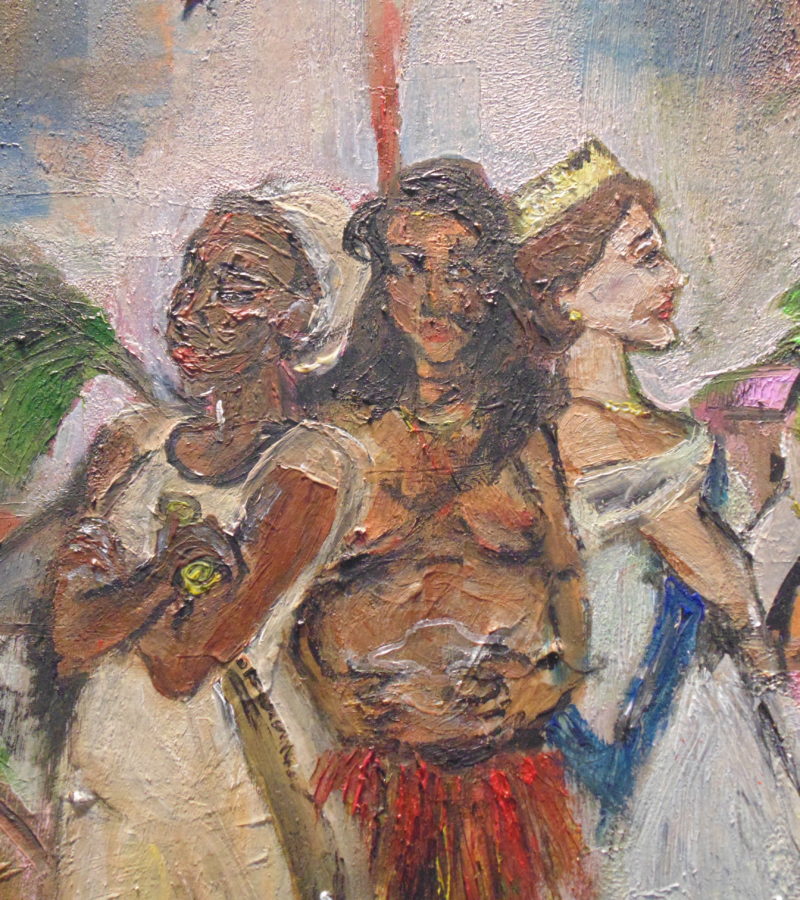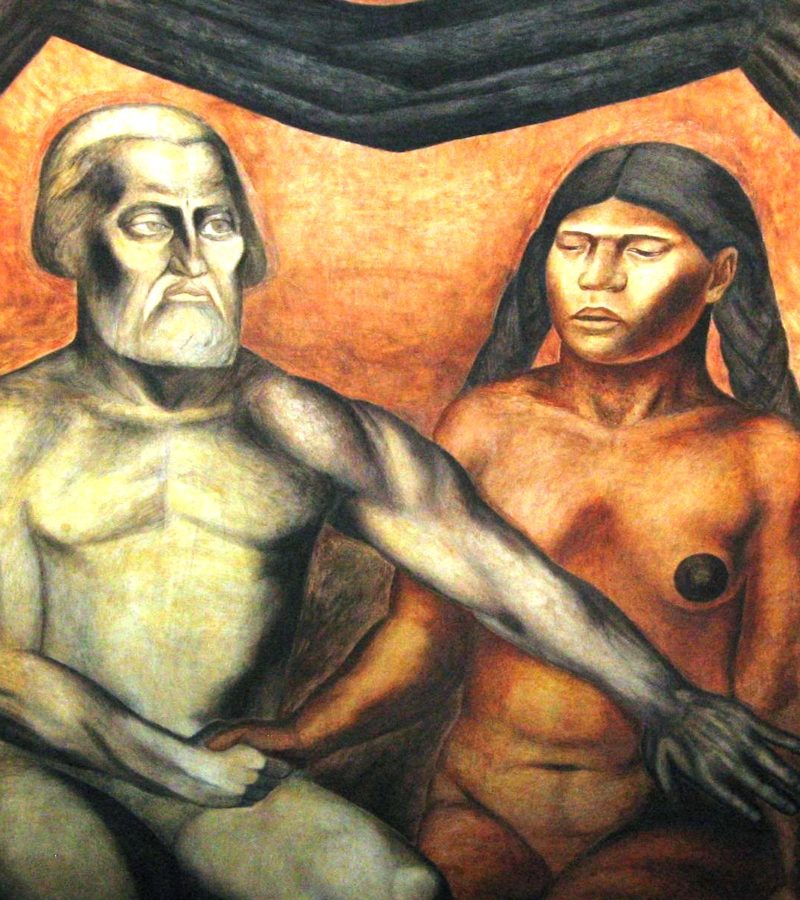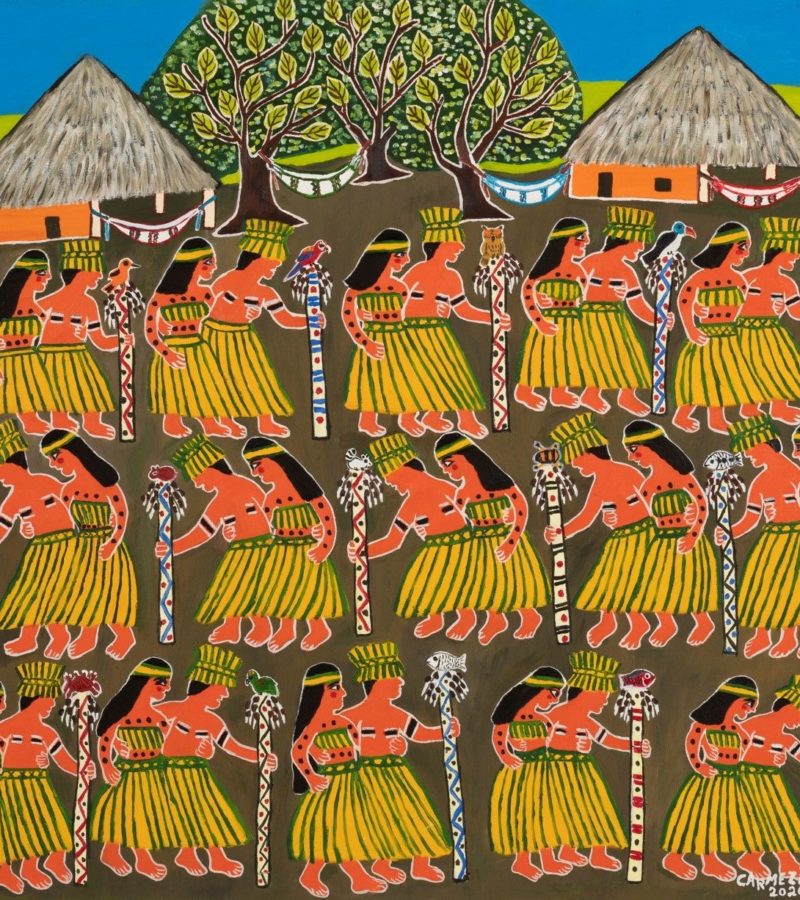Forget Lobato?
In 2020, as in previous moments, the Brazilian media spread deep controversy regarding the oeuvre of Brazilian writer Monteiro Lobato’s. Was he racist? the media and public debated.1 Lobato is not just any other author. A prolific writer, he has published dozens of books, including a collection of twelve children’s books (the objects of the controversy in question) as well as works of adult fictional and essays. Today, there is little to no doubt that Lobato was indeed racist, as was his work.2
As they had been gifts from a dear aunt, I myself, a shy Black boy, read and reread Lobato’s children’s books several times. They became my best friends, and the company of his characters made the world a little more livable for me. This created a complicated problem. My relationship with the writer’s oeuvre and the comfort these books offered me paint a bitter picture of the subjectivation involved in the apprehension of a world which, I can see now, is fundamentally anti-Black. As Oswaldo de Camargo did in Genoveva, I must now say to my absent relatives, ‘tão tristes no meu pensamento’[so sad in my thoughts],3 not as a means to forget Lobato, or to forget myself, but in order to remember this moment of danger in which self-salvation depended on and was born from the shock of seeing oneself reflected in a malicious mirror.
![[Description: Valeska Soares, Duplaface (Branco de titânio), 2017. Oil and cutout on existing oil portrait, 71 x 56cm. Courtesy MASP]](https://www.afterallartschool.org/wp-content/uploads/2021/03/Osmundo_Valeska-Soares-1920x1151.jpg)
Representation is a Prison
And this mirror is an alluring abyss. It concerns not only the ideological commitment within Lobato’s text to eugenics, and the prevailing and powerful racisms of the first half of the twentieth century, but also a person’s relationship with the written word and representation itself. What does this relationship mean for Blackness in an anti-Black world? What does it mean, to the Black subject, to find or lose themself in the dreadful plot of linguistic signs fixed in fleeting pages?
In Writing and Difference, Derrida says:
The poet is thus indeed the subject of the book, its substance and its master, its servant and its theme. And the book is indeed the subject of the poet, the speaking and knowing being who in the book writes on the book. This movement through which the book, articulated by the voice of the poet, is folded and bound to itself, the movement through which the book becomes a subject in itself and for itself, is not critical or speculative reflection, but is, first of all, poetry and history. For in its representation of itself the subject is shattered and opened.4
In this case, the insidious character of epistemological colonisation – the cognitive plantation – refers to a structural dimension, implicit in the denial of other cosmo-epistemological forms that escape the political economy of sign and representation.5
Writer Carolina Maria de Jesus is a phenomenon in the aesthetics of Brazilian writing. Living and dreaming amid extreme misery, hunger and violence, she gave birth to a flaming flash of strength and a visionary glimmer. When she was a domestic worker in São Paulo, Carolina read what she could at the house of one of her rich employers. She also read what she was able to find in the dumpster where, during the day, she tried to salvage what she could for dinner in the evening. ‘Há de existir alguém que lendo o que eu escrevo dirá … isto é mentira! Mas as misérias são reais’ [There must be someone who, reading what I write, will say … this is a lie! But the miseries are real].6 Amid extreme poverty and despair, the words, the book itself, the diary she compulsively wrote would be not salvation, but a message in a bottle, moving towards a reader lost on a lonely beach. However, to represent is also to alienate, and to slip on the dichotomic commitment that hangs between the world of substances and their meaning, between the sign and the thing; the subject and the object. Within this mediation, becoming a subject to oneself means representing oneself through an Other which ‘is shattered and opened’. Representation is thus a prison, a bondage which only allows me recognition through denial.
Afro-Fabulation
As T. Nyong’o puts it,7 Blackness can be understood as this and many other contradictions incorporated in the world in a very material sense. It is a contingent materiality, historically conceived in a structure of incommensurable antagonisms; a contingency defined by the suppression of the symbolic that is projected onto the enslaved person, the Black person, identified with their body.8 In the environment of colonialism, in the anti-Black world, Black bodies need to fight, resist and object in a given scene in order to be recognised and identified within a coherent and legible subjectivity.9 This recognition, which seems possible only through the mediation of writing, presents itself this way as a contradiction.
To paraphrasing Tavia Nyong’o’s question in Afro-Fabulations, what kind of poetics could escape the gravitational trap of representation?
The objection to the argument I have been making against the politics of representation and representability […] will be both immediate and unanswerable. This objection holds that the social and political world we live in works by means of representation and through socially recognised identities.10
Nonetheless, we may argue, the anti-Black world is not the only world in which we live. In Brazil, in Latin America, in many contexts of the African diaspora, we inhabit a Black world, as a double or transformation.11 That is to say, the Améfrica Ladinao of cultural traditions,12 religiosity, music, and performance,13 and many other expressive cultural forms. This Black world is neither based on nor incarcerated within representation. But it is in the reflexive confrontation between these worlds – at the border or edge – that the Black subject goes through the mirror and, with horror or delight, recognises themself also in these anti-Black ghosts. That is how we live our Blackness. Amidst these metamorphoses, the message in a bottle or the stolen word is our damnation.
Decolonising the Library at the Periphery
The university where I work, in the city of Cachoeira, in the state of Bahia, considered to be the Blackest in Brazil, is located in this ancestral territory of pain, struggle, celebration and resistance. Populated by countless Black/African-Brazilian traditions, this region is also very poor.14
The Arts and Humanities courses at the Federal University of Recôncavo da Bahia (UFRB) are located in Cachoeira, which is appropriate considering the city’s cultural and artistic traditions. Cachoeira is also home to an important scene of reggae music and to many ateliers of wood sculptors, besides the sambas and candomblés. As at other Brazilian federal universities in the wake of racial affirmative actions, at UFRB we see the same beautiful, tremendous Black political and cultural effervescence. Ante-room of an imminent Black/African-Brazilian spring? We certainly hope so.15 As in other contexts, the massive entry of Black and poor people into Brazil’s most prestigious universities, the public ones, triggered a wave of demands for the decolonisation of knowledge and curricula. And with this point, I want to conclude, considering what has been discussed above concerning the relationship of the Black subject in relation to a library that is not only colonial and racist, but also anti-Black. Should we forget and abandon Lobato? But also Marx? Foucault? How about authors such as Achille Mbembe and even Fanon, so westernised as they are? Well, as Hartman tells us:
It is important to remember that Blackness is defined here in terms of social relationality rather than identity; thus Blackness incorporates subjects normatively defined as Black, the relations among Black people, white people, and others, and the practices that produce racial difference. Blackness marks a social relationship of dominance and abjection and potentially one of redress and emancipation: it is a contested figure at the very centre of social struggles.16
That is, the anti-Black world is our world as well, as are the African traditions and the history of Black struggles and insurrections that constitute us. A history of racism and anti-Blackness have built the world we inhabit and with which we must relate. Through the mirror, the perverted ghost of ourselves interrogates us. This world is not only the racist world of eugenics, but the very machine that engenders meaning through sign and representation. To position ourselves at the edge of this is to confront those ghosts whispering to us through the mirror.
In the new refavela of the twenty-first century,17 in UFRB’s effervescent cauldron in Cachoeira, the multitude of nonconforming, racialised and queer subjectivities cries out for a new dawn, not only for racial liberation, but also for liberation from the captivity of representation, as well as for a new relationship with the written world and with non-representational forms of knowledge. This horizon is utopic and does not depend on voluntarisms, but rather on the conscious activity that weaves, day by day, the end of the world. The end of this world and its metamorphoses. As in the medieval poem:
Dies irae, dies illa
Solvet saeclum in favilla.18
Translated from Brazilian Portuguese by Bruna Barros
- 1. Ingredi Brunato, ‘Aventuras na História: Secretário da cultura critica reedição de Monteiro Lobato que suprime trechos racistas [Culture Secretary Criticizes Reissue of Monteiro Lobato’s Work that Suppresses Racist Excerpts], available at https://aventurasnahistoria.uol.com.br/noticias/historia-hoje/secretario-cultura-critica-reedicao-de-monteiro-lobato-que-suprime-trechos-racistas.phtml (last accessed on 12 Jan 2021); ‘Governo Bolsonaro critica reedição de Monteiro Lobato que suprime trechos racistas’ [Bolsonaro Administration Criticizes Reissue of Monteiro Lobato’s Work that Suppresses Racist Excerpts] Folha de São Paulo, 22 December 2020, available at https://www1.folha.uol.com.br/ilustrada/2020/12/governo-bolsonaro-critica-reedicao-de-monteiro-lobato-que-suprime-trechos-racistas.shtml (last accessed on 12 January 20201).
- 2. João Feres Júnior, ‘Leonardo Fernandes Nascimento e Zena Winona Eisenberg. Monteiro Lobato e o Politicamente Correto’ [Monteiro Lobato and the Politically Correct] Revista de Ciências Sociais, Rio de Janeiro, no.1, vol.56, 2013, pp.69–108.
- 3. Oswaldo Camargo, Raiz de um Negro Brasileiro, São Paulo: Ciclo Contínuo Editorial, 2015.
- 4. Jacques Derrida, Writing and Difference, trans. Alan Bass. London/New York: Routledge, 2001, p.79.
- 5. Jota Mombaça, The Cognitive Plantation, trans. Bruna Barros and Jess Oliveira, MASP/AFTERALL no.9, 2020, available at https://masp.org.br/uploads/temp/temp-ozOTDILJLWY5KnnUjBJO.pdf (last accessed on 12 January 2021).
- 6. Carolina Maria Jesus, Quarto de Despejo: Diário de uma Favelada, São Paulo: Círculo do Livro, 1960. p.41.
- 7. Tavia, Nyong’O, Afro-Fabulations: The Queer Drama of Black Life, New York University Press, 2018.
- 8. Hortense J. Spillers, ‘Mama’s baby, papa’s maybe: An American grammar book’ in Diacritics, vol.17, no.2, 1987, pp.64-81.
- 9. Fred Moten, In the Break: The aesthetics of black radical tradition, Minneapolis/London: University of Minnesota Press, 2003.
- 10. T. Nyong´O, op. cit. p.156.
- 11. No sentido estruturalista, como em Claude Lévi-Strauss, ‘A Estrutura dos Mitos’ in Antropologia Estrutural, Tempo Brasileiro, Rio de Janeiro, 1975, pp.237–265.
- 12. Lélia Gonzalez, ‘A Categoria Político-Cultural de Amefricanidade’ in Tempo Brasileiro, no.92/93, 1988, p.69–82.
- 13. T. Nyong´O, op. cit., p.155.
- 14. See Beatriz Giuliani, Um Olhar Etnográfico Sobre a Escola e a Formação de Identidade Cultural: reflexões entre contextos pluriculturais e educação, Cachoeira, 2011. Master’s Thesis (Mestrado em Ciências Sociais: Cultura, Desigualdades e Desenvolvimento), Universidade Federal do Recôncavo da Bahia. IPHAN, Cachoeira, BA, available at http://portal.iphan.gov.br/pagina/detalhes/112 (last accessed on 29 July 2018).
- 15. In the author’s words, ‘Oxalá que sim’. (T.N.)
- 16. Saidiya Hartman, Scenes of Subjection: Terror, slavery, and self-making in nineteenth-century America, New York/Oxford: Oxford University Press, 1997, pp.56–57.
- 17. A reference to the song ‘Refavela’ by Gilberto Gil from the 1977 album of the same name.
- 18. ‘The day of wrath, that day/In which the world shall dissolve into ashes’.


![[Description: Black and white photograph of people looking out of a window]](https://www.afterallartschool.org/wp-content/uploads/2021/03/Thomaz-Farkas_Rahul-Rao-800x900.jpg)


